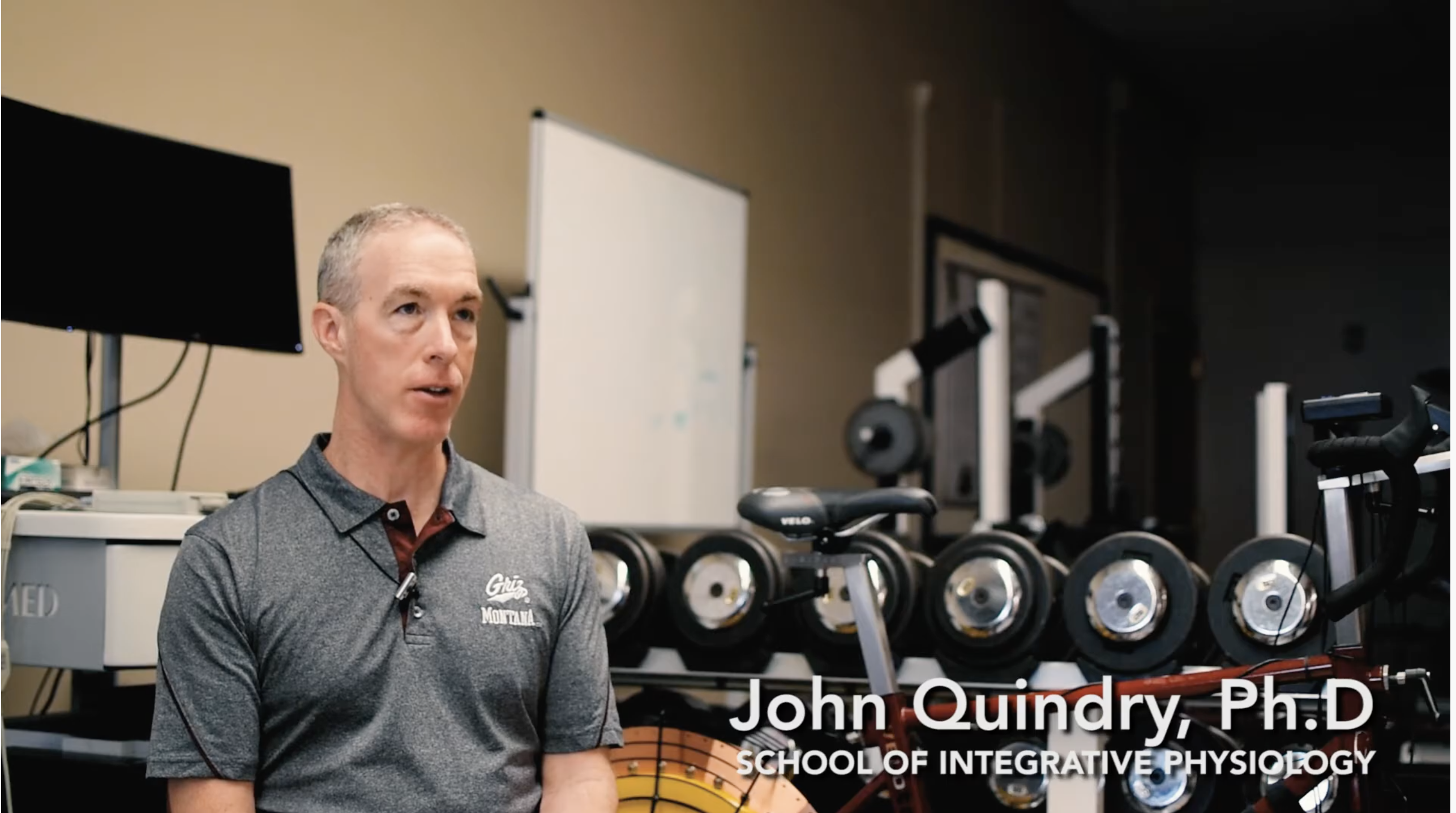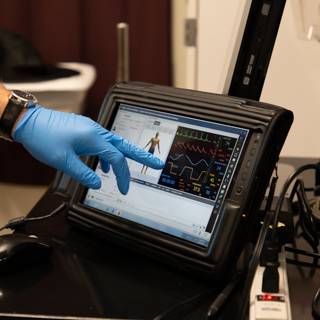Cardioprotection and Exercise Biochemistry Laboratory
Laboratory Director
Dr. John C. Quindry, PhD, FACSM, FCVS-APS
Professor and Chair of Integrative Physiology and Athletic Training

Education and Training Background:
- Illinois State University, BS, Exercise Science
- Illinois State University, MS, Exercise Physiology
- Quillen College of Medicine/East Tennessee University, PhD, Biomedical Sciences
- University of Florida, NIH Post-Doctoral Fellow (Scott K. Powers, mentor)
Contact Information:
Email: john.quindry@mso.umt.edu
Phone: (406) 243-4268
Office: 102 McGill Hall
Laboratory Location:
McGill Hall 112a, 015
School of Integrative Physiology and Athletic Training
College of Health Professions and Biomedical Sciences
University of Montana
Research Description:
From a fundamental perspective, the Cardioprotection and Exercise Biochemistry Lab examines clinical and non-clinical questions about exercise, cardiovascular disease (& prevention) as related to systemic oxidative stress (within the blood of muscle tissue). Using this approach, we train future medical professionals (MD, DO, DPT, etc) and academic scientists (PhD) using clinically relevant and scientifically innovative approaches to understand how cardiovascular health is impacted by exercise and oxidative stress.
- The research emphasis of the lab is the intersection of exercise and cardiovascular disease. Because oxidative stress is central to preventing cardiovascular disease on one hand, causing disease on the other hand, biological aspects of oxidative stress are central to all our research questions.
- In human (healthy and clinical populations) and animal (mouse and rat) models we examine questions about how exercise and physical activity prevent cardiovascular diseases (hypertension, ischemic heart disease, heart failure, etc). Some of these research questions include the environmental influence (heat/cold, altitude, air pollution, etc.) on oxidative stress as a preventive or causative factor in cardiovascular health.
Research Techniques:
- Human-based testing: Human exercise testing, vascular function, autonomic function, metabolic function, ECG, pulmonary function, blood, muscle, and saliva biological testing.
- Animal-based testing: Rodent (mouse and rat) exercise, rodent physical activity, pulmonary function, small animal surgery models for heart attack (in vivo myocardial infarction, and isolated heart), ECG, blood pressure, cardiac echo cardiography.
- Tissue processing: Histological/biochemical/molecular biology assays of muscle, blood, saliva from human and animal models. Trainees in the lab become proficient in working with humans and animals, exercise testing, working with clinical populations, basics in microscopy, applied biochemistry/molecular biology, and physiologic testing.
Opportunities for Involvement:
Please contact John C. Quindry at john.quindry@mso.umt.edu
Publications:
Lab Members:
Tiffany Quindry
Position: Laboratory Technician
Education Background: BS, Illinois State University
Joe Sol
Position: PhD Student
Educational Background: BS, Exercise Science, Kennesaw State University, MS, Applied Exercise and Health Science, Kennesaw State University
Anna Covington
Position: Master's Student
Educational Background: BS, Kinesiology and Exercise Science, Samford University
